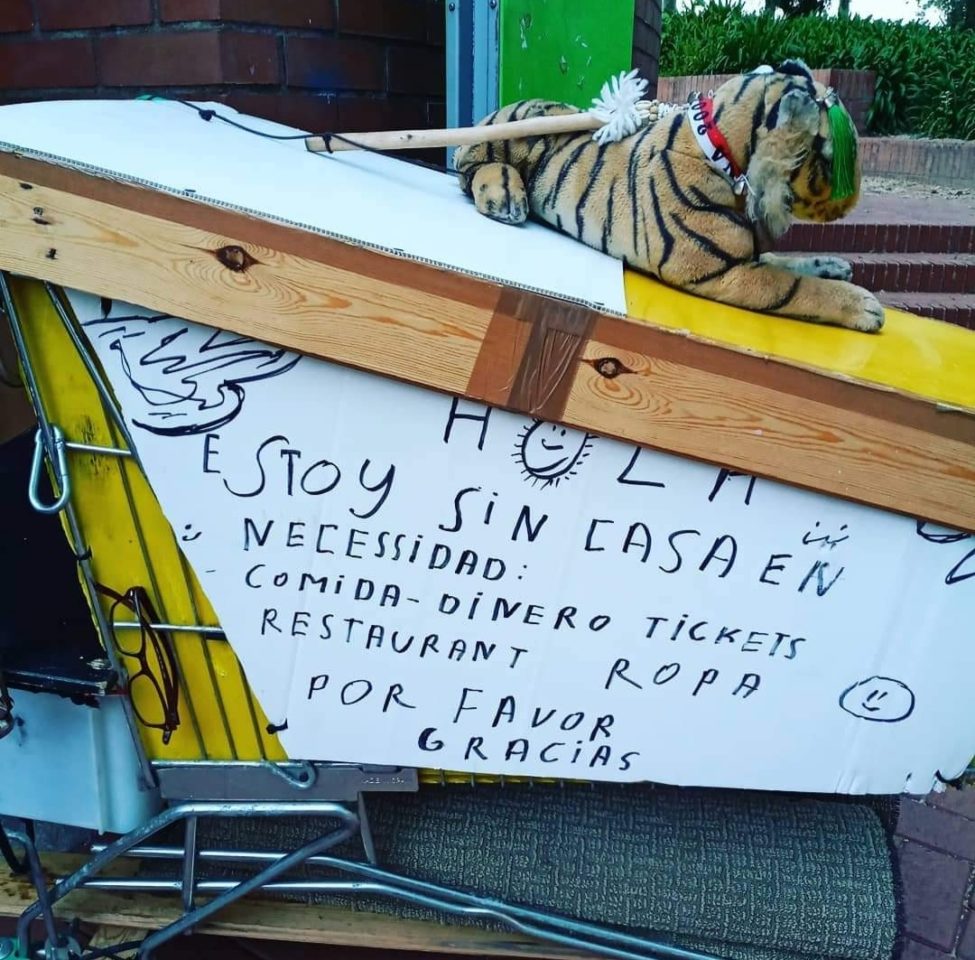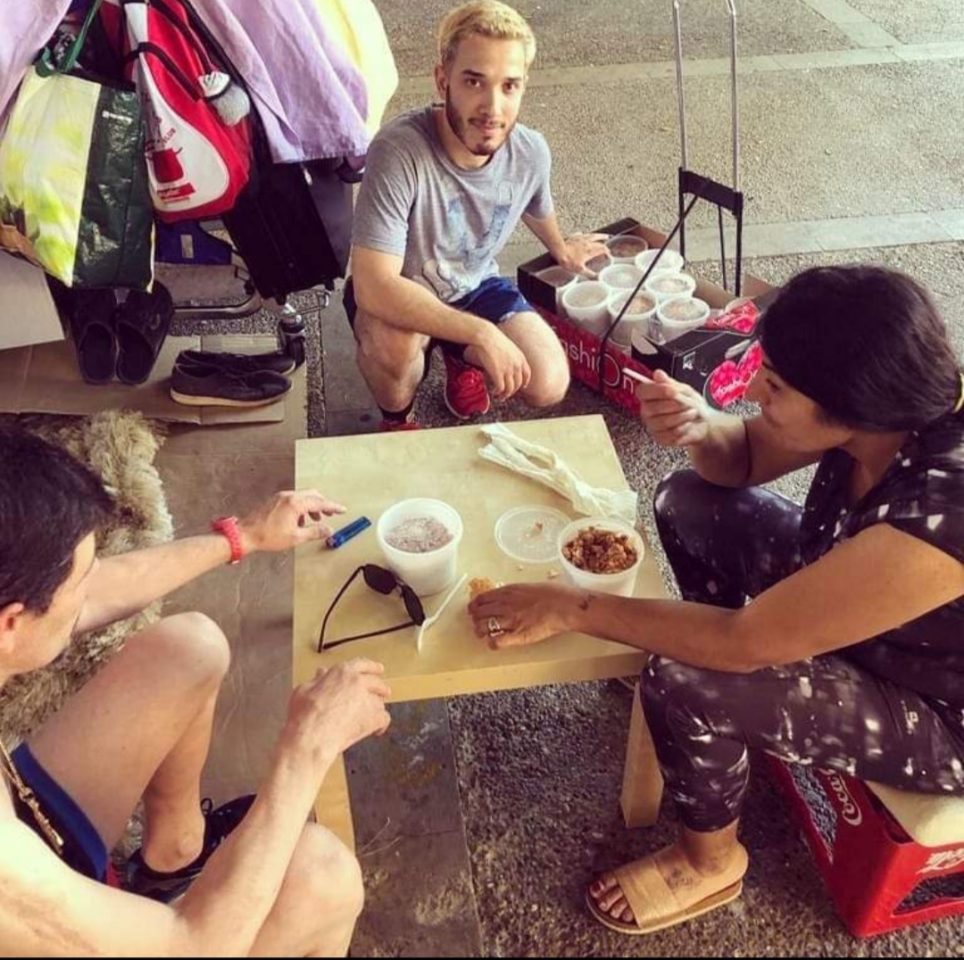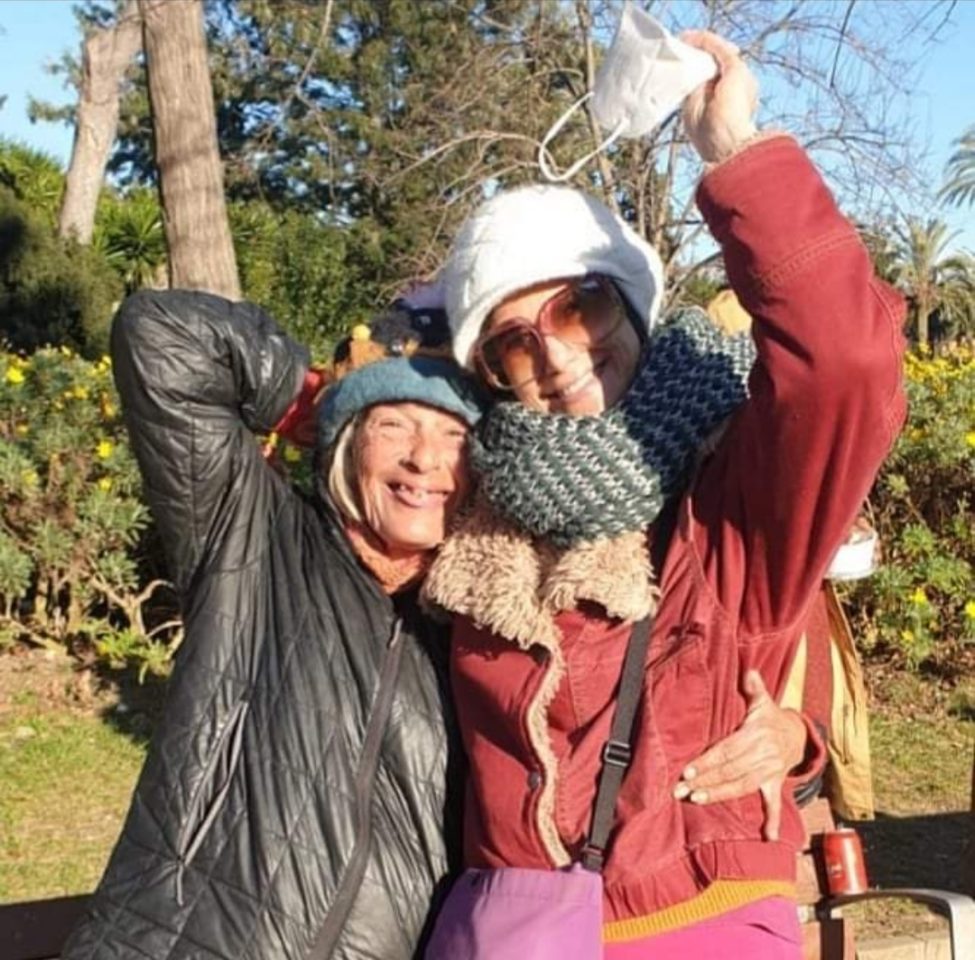info@graf.cat
January 2022
Ruta de autor 5/5
by Leonor Urdaneta
Chronicle of confinement:
a kitchen outside the home
The important thing is not to stay alive, but to stay human.
George Orwell
The beginning
I was locked up with my teenage son in the rented flat in Ribes street, where we have been living for fourteen years. It had been a long time since we had spent so much time together. He decided to happily immerse himself in video games, while I, incredulous and naive at the same time, thought that this biodictatorship would not last more than three months.
I was coming from a fast-paced, work-heavy schedule. Five nights a week I was cooking dinner for thirty, forty or fifty people in a hostel, as well as renting out rooms to tourists in my house for years to make ends meet. Suddenly, everything had come to a standstill, I now had plenty of time, but I was anxious and quite financially strained, like most people, I suppose. I was in debt to the landlady of the building, who would not agree to lower my rent by a single euro during the long period of confinement.
Which house?
One morning in April of that terrible year, in the middle of quarantine, I left home. I walked almost two kilometres to a Town Hall office located at 17 Ramelleres Street in order to process a procedure that I urgently needed. But, although Google indicated that it was open, the office was closed. During the whole terrifyingly desolate journey, what struck me most was not the silence, the stillness or the solitude that I had never felt in those streets a thousand times before, but the overwhelming number of homeless people I encountered on the way.

I thought wryly of the phrase “stay at home”, so often touted during those days as an attempt to curb the disease. So many people were dying, true, but I wondered where those who didn’t have a house would stay.
An initiative
I went home with my head spinning, wondering how I could do something. I spoke to a couple of friends, fortunately they were immediately supportive. One of them, a doctor, was living the nightmare up close and offered me the money for the first purchase of ingredients; the other worked delivering surgical and pharmaceutical material, so he had a mobility authorisation, which would allow us to move around the city without any problem.
So I began, with my son’s help, to prepare the first meals and then distribute them with my friend around Passeig Picasso, Borne, Gothic Quarter, Barceloneta and Raval. We began by making forty-five tuppers that would later become sixty or seventy thanks to the support and solidarity of people close to us or unknown to us; people who, from different geographical locations, joined in the initiative to give a little love in the form of food for Los olvidados, as Buñuel called his film shot in Mexico in the 1950s.
May solidarity never die
We created a solidarity network between friends and volunteers that varied according to the day and the availability of each person. We divided the work into teams to do the shopping or recycling of ingredients, cooking, packaging and finally going out to distribute with a shopping trolley, walking.
We started the route in the vicinity of the Barcelona Nord Bus Station and then went towards Passeig Picasso and Parc de la Cuidadela, back to the Arc de Triomf and into Borne along Carrer Sant Pere Més Baix until we reached Santa Caterina Market, crossed Via Laietana, continued towards Gothic Quarter along De la Boqueria street, crossed the Rambla and entered Raval along Elisabets street, leading to the Macba and its surroundings.
“The Forgotten” thus became our mission; a kind of catharsis that, during each weekend throughout that year, freed us from the inertia and relentless pettiness that plagued the atmosphere. It gave us the opportunity to look inward and bring out the best in ourselves, to be grateful for what little or much we have and to share it.
 Juampi Baioni making deliveries at Passeig Picasso
Juampi Baioni making deliveries at Passeig Picasso
Finally the “new normal” arrived, life got back on track. Some of us went back to our jobs, to the daily slavish routines, to running around like crazy from one place to another without looking at others. However, the people on the street are still there. We go back from time to time, when work and our chores allow us to do so. We come back to cook and to meet again.
 With María Marie Poppins Poppins at Parc de la Ciutadella
With María Marie Poppins Poppins at Parc de la Ciutadella
*Ruta de autor’s note:
For the last route in this series of five that we have curated for Graf, we have chosen a very honest project linked to care. Leonor «Beba» Urdaneta, journalist and film-maker, is the writer of this journey. A cook by heritage and passion, she works in different jobs and has created a solidarity network that delivers food to people living on the streets. She is the one who seasons and cooks the food from donated foodstuffs.
—
Ruta Graf with Ruta de autor. Text by Leonor «Beba» Urdaneta, journalist and film-maker.
This route is part of a series of five in which four other artists participate. Ruta de autor has selected four works that address the peripheries of Barcelona: Internet infrastructures (Mario Santamaría), the colonial garden (Agustín Ortiz Herrera), artistic gentrification (Zaida Trallero) and the homeless present (Leonor Urdaneta). We invite you to read, walk and stay tuned.






